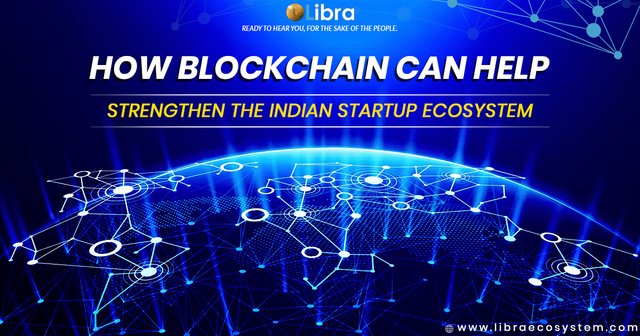How Blockchain Can Help Strengthen the Indian Startup Ecosystem
The startup ecosystem in India has come a long way since the start of this century. In the beginning, in the early 2000s, there were only a few new companies in the country, which also were struggling to get the necessary help, funds, etc. because of the lack of development in this sector. But, today, there are numerous startups throughout the country, including both big and small cities. This has been possible mainly because of the technological evolution that India has witnessed over the past couple of decades.
Internet, FinTech, blockchain, AI, etc. are just some examples of the latest technologies that have paved the way for the present startup ecosystem growth in India, with blockchain deserving a special mention.
Why blockchain?
The reason why blockchain deserves a special mention among the technologies that reshaped the face of the Indian startup ecosystem in the past decade is that this has been a hot topic of interest for entrepreneurs and investors alike, especially those in the fintech industry.
Because blockchain is a distributed ledger technology (DLT) that offers a way to perform digital transactions, including money transfer, without intermediaries like banks, it stands to revolutionise the way financial transactions are performed globally, and already is. There are already a large number of startups and big companies in India working on blockchain-based solutions to help solve the various problems in finance and other industries.
In the finance space, blockchain technology and blockchain-based cryptocurrencies are already doing a lot of good by enabling businesses to embed and use an easier, more convenient, secure and middlemen-free payment system into their systems.
Because the blockchain-based payments systems are peer-to-peer and don't involve the use of middlemen, payments are literally settled in seconds. Unlike traditional payments that are controlled by banks and take hours, and sometimes days in case of technical or human failures, crypto payments are instant, even when performing cross-border transactions.
By removing the need for middlemen in financial transactions, blockchain can help businesses and users save huge money paid in fees to traditional payment processing services like cards and banks. In India, a user has to pay 2-3% fees per transaction to the card companies on average. These charges can be significantly reduced with the inclusion of blockchain technology in payment systems. The Libra coin is a wonderful example of this.
The Libra Coin is a digital currency that can be used for practically any kind of digital payment with e-commerce and retailers anywhere in the world. It involves the use of blockchain technology and smart contract for the secure processing of payments and incurs a much less fee per transaction as compared to traditional payments. Moreover, blockchain transactions are highly secure and private, as the trading parties are not required to share their personal information with anyone.
Other benefits that blockchain has for the fintech startups in India include reduced risk of fraud, increased security, increased transparency, better reach of financial services to all corners of the country, and reduced probability of human-originated errors.
However, the advantages of blockchain are not limited to only the finance industry. As we’ve seen many examples in the past couple of years, startups and enterprises in many other sectors, ranging from e-commerce to healthcare, election, digital identity, digital storage, data security and others are successfully experimenting with the use of blockchain technology to build next-gen products and systems for the betterment of people in India.
Original Source: www.medium.com
